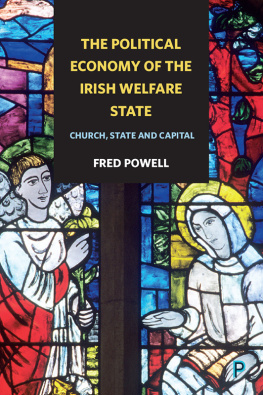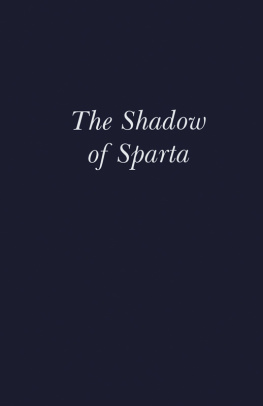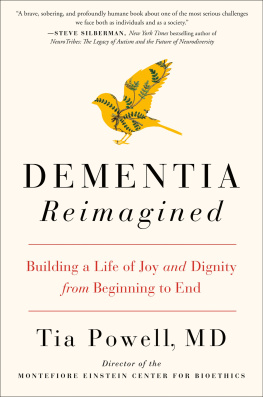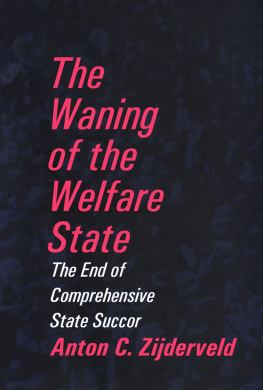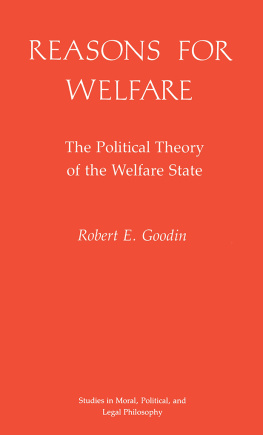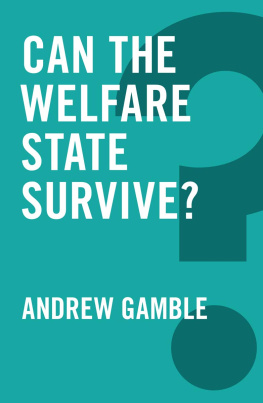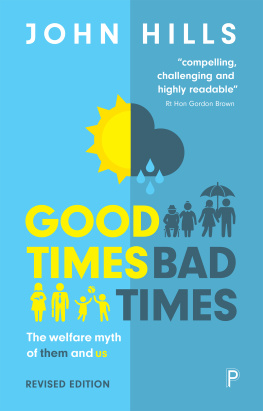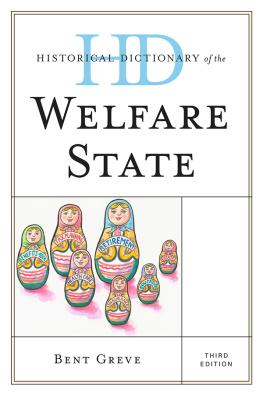THE POLITICAL ECONOMY OF THE IRISH WELFARE STATE
Church, state and capital
Fred Powell
First published in Great Britain in 2017 by
Policy Press University of Bristol 1-9 Old Park Hill Bristol BS2 8BB UK Tel +44 (0)117 954 5940 e-mail
North American office: Policy Press c/o The University of Chicago Press 1427 East 60th Street Chicago, IL 60637, USA t: +1 773 702 7700 f: +1 773-702-9756 e:
Policy Press 2017
British Library Cataloguing in Publication Data
A catalogue record for this book is available from the British Library
Library of Congress Cataloging-in-Publication Data
A catalog record for this book has been requested
ISBN 978-1-4473-3291-6 hardcover
ISBN 978-1-4473-3537-5 ePub
ISBN 978-1-4473-3538-2 Mobi
ISBN 978-1-4473-3292-3 ePdf
The right of Fred Powell to be identified as author of this work has been asserted by him in accordance with the Copyright, Designs and Patents Act 1988.
All rights reserved: no part of this publication may be reproduced, stored in a retrieval system, or transmitted in any form or by any means, electronic, mechanical, photocopying, recording, or otherwise without the prior permission of Policy Press.
The statements and opinions contained within this publication are solely those of the author and not of the University of Bristol or Policy Press. The University of Bristol and Policy Press disclaim responsibility for any injury to persons or property resulting from any material published in this publication.
Policy Press works to counter discrimination on grounds of gender, race, disability, age and sexuality.
Cover design by Hayes Design
Front cover image: www.alamy.com
Readers Guide
This book has been optimised for PDA.
Tables may have been presented to accommodate this devices limitations.
Image presentation is limited by this devices limitations.
I wish to dedicate this book to the memory of my father, Dr Anthony Powell 1913-2002, who believed that the Hippocratic Oath entitled every person to medical treatment as of right, regardless of class, religion or ethnicity.
This is one of those rare books that can step back from the flow of history, identifying the continuities behind seemingly sweeping changes. Thus, it is far more than a history of the Irish welfare state as it places this embodiment of a just society in the wider context of the forces shaping Irish society and the grossly unjust and unequal outcomes. It is essential reading for anyone interested in understanding how, over the last century, Ireland has become what it is. Perhaps more importantly, it sets out the immensely challenging agenda facing those who seek to lay the foundations of a society that has the will and the ability to work for, and cherish well, all its citizens. Peadar Kirby, University of Limerick
The political economy of the Irish welfare state is at once a coherent and provocative examination of the role of social policy in shaping modern Ireland, a comparative analysis of Irish modernisation and a vital contribution to Irish social history. It combines both breadth of analysis and lucid focus. Professor Powells landmark book should be required reading for students of modern Irish history, Irish society and Irish institutions. Bryan Fanning, University College Dublin
This is a forthrightly critical, wide ranging and engaging study. It conveys with skill and panache the particular, unique development of the welfare state in Ireland, shaped by conservative Catholic culture and power, as well as progressive social movements, particularly the womens movement. This is contextualised throughout by reference to social policy regime analysis and modernisation, laced with a keen sense of social justice opposed to undemocratic corporate power, neoliberalism and patriarchy. Norman Ginsburg, London Metropolitan University
Professor Fred Powell has written a book which captures the complex narrative of the Irish Welfare State. In a clearly written and engaging account of welfare politics and policy, he documents how the progressive instincts of democrats, socialists and feminists were overwhelmed from the establishment of independent Ireland in the early 1920s by an alliance of state, church, and property interests. This has given rise to a society where the welfare of the people and the values of social justice are secondary to the priorities of institutions, economy, and local and global vested interests. Cathal OConnell, University College Cork
Preface
This book is the product of four decades of teaching and research. What has been clear to me for a long time is that Irish social policy, and its institutional manifestation as a welfare state, is unique. Many scholars have tried to fit the Irish welfare state into one of the pre-existing international models, with limited success (Esping-Andersen, 1990). As this book will show, there is no clear agreement about what kind of welfare state exists in Ireland. The most positive endorsement one can make regarding the Irish welfare state is the stark reality that without its existence half the population would be at risk of poverty (Central Statistics Office, 2015: 5). On the other hand it is important to acknowledge that it is a residual welfare state dominated by means tests, with an American style two-tier health service (Wren, 2003), a dysfunctional housing system driven by a culture of property-ownership and asset acquisition at the expense of the poor, who experience over-priced rents and spiralling homelessness (Norris, 2016), and an education system that is religiously and socially segregated.
Given the overweening power exercised the Catholic Church during much of the history of the Irish state, it is fair to say that the welfare state has been a contested ideal in Ireland that against the odds has emerged in the shadows of Irish polity. To quote Dr Johnsons remark about the dog walking on his hind legs: It is not done well: but you are surprised it is done at all. The Irish welfare state is officially described as hybrid and complex (National Economic and Social Council, 2005). It is in reality an enigma in search of an explanation. That is the task of this book.
I have been interested in this intellectual project for most of my academic life because the welfare state encapsulates the practice of civic virtue in modern society. I hope the book will bring some clarity to the social policy debate and the importance of the welfare state in the future development of Irish democracy. My personal biography has coincided with many of the debates that have shaped Irish social policy. It has equipped me with some of the sociological insights of the participant observer into understanding the path development of the Irish welfare state.
William Wordsworth, the great Romantic poet, wrote the child is father of the man in his 1802 poem The Rainbow; this is a good metaphor for the Irish welfare state, combining hope with illusion. My youthful interest in social policy, and the idea of a welfare state, was kindled by the Just Society debate in the 1960s and reading George Orwell as a schoolboy in a medieval Benedictine Abbey at Glenstal in remote County Limerick. Through reading books and newspapers, I began to realise that the European Enlightenment had produced a rupture with the medieval world dominated by church, monarchy and a feudal social order. Revolution and the rebirth of democracy in the eighteenth century had ushered in the modern era based on secular cultural values: egalitarianism, human rights and the welfare state. I also grasped that Irish society had been caught in a time warp and was embracing modernisation in a societal attempt to escape from a failing historical project, the hallowed cause of Irish Independence.

